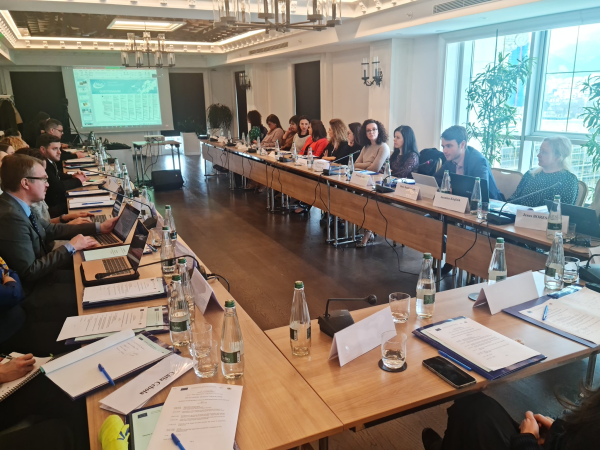The final conference and the experts meeting of the European project EN4s – Diversity of enforcement titles in cross-border debt recovery in the EU took place last March 3 and 4 at the Faculty of Law of the University of Tirana, Albania.
ESTG teachers Eugénio Lucas and Cátia Cebola, and José Caramelo Gomes and Lurdes Mesquita from IJP are part of this European project.
This project started on 27 June 2019 and is in its final phase, having as partners a consortium composed of universities from15 European Union Member States and 1 partner from a European Union Candidate State.
Of the many obstacles facing cross-border judicial enforcement, perhaps the most relevant is the lack of mutual trust between the national authorities of different EU Member States. National authorities deal with enforcement orders from other Member States with reservations and mistrust. This problem is exacerbated by the diversity of enforcement orders existing in the various Member States, notably as regards their structure and effects. The project aims to analyse these differences and address the problems identified, with the main objective of strengthening mutual trust.
The objectives of the project are the following:
– Contribute to the comparative analysis of dogmatic and empirical concepts in the field of enforceable titles, namely judgements, court settlements and authentic instruments, in order to facilitate a better understanding of the rules in force in the Member States regarding their legal effects (e.g. res judicata), especially when several Member States are involved, thus enhancing cross-border effects, especially in the light of the regime established by the Brussels I Regulation for recognition and enforcement of judgements;
– Clarify the meaning of complex notions such as cause of action, irreconcilability of judgments and related actions;
– To study in a developed manner the role of authentic instruments, especially with regard to notarial acts with enforceability;
– Prepare a useful handbook for authorities with enforcement functions, providing a concise overview of examples of enforcement titles and foreign proceedings;
– Improving the certificate of enforceability in the Member State of origin;
– Test arguments for abolishing the public policy reservation;
– Draw up proposals to help reduce, if not eliminate, terminological obstacles;
– Create a prototype of an IT tool (aptly named “Enforcement Oracle”) where practitioners, in an interactive manner, could quickly become acquainted with the specificities of foreign enforcement titles.
– Analyse perspectives for future automated cross-border enforcement procedures.
The EU-En4s project is co-funded by the EU Justice Programme (2014-2020). The primary objective is to promote judicial cooperation in civil matters and to contribute to the effective and consistent application and enforcement of EU legal instruments.








